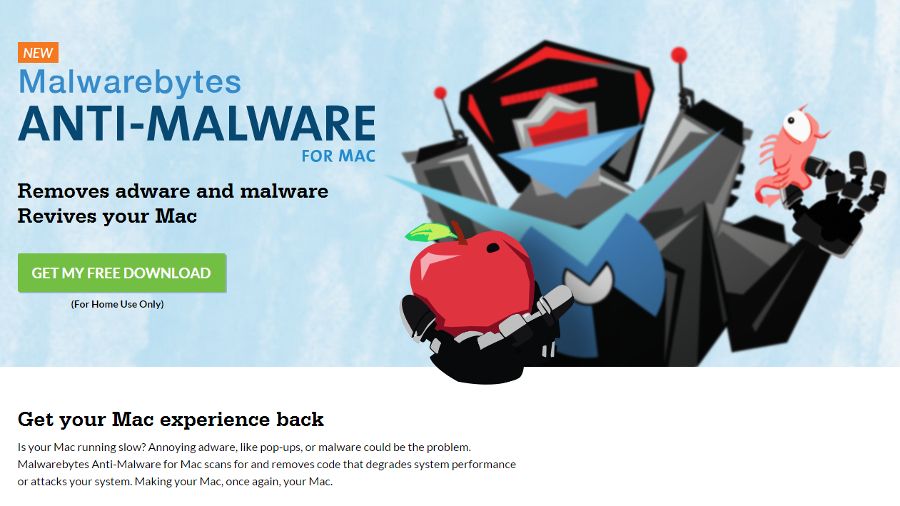Ant Malware Programs For Mac

That's why a good anti malware for mac is very important. We recommened using a malware scanner regulary to avoid having any issues with your mac. Your computer is expensive so be sure to protect if with solid, well known malware protection software. This is why the popularity of anti-malware programs and optimizers of Apple devices have also grown in number so that they answer the increasing demand of Mac users. One such program is Combo Cleaner which aims to include Antivirus, disk cleaner, big file clean, uninstaller, duplicate file remover and privacy scanner utilities.
Rubenking The Best Malware Removal and Protection Software of 2018 Malware comes in many forms, but one thing's for sure—you don't want it attacking your computer. We've tested nearly 100 anti-malware apps to help you find the the best malware protection and removal software for all your devices. You Need Malware Protection Every day you turn on (or wake up) your computer hardware and create or communicate using computer software. Some use the term to describe the creative spark that informs what you say, write, or draw. But malware (malicious software) can have a damaging effect on all three other types of 'ware.'
It can lock up or damage your hardware, subvert or infect your software, and give you a headache, too. You need protection against malware, in the form of an at a minimum.
Running without protection just makes no sense. Malware protection solutions come in all sizes. Despite the word 'virus' in the name, a antivirus utility actually aims to protect against all types of malware. Full-scale security suites expand protection to include such things as spam filtering and parental control. Some antimalware tools work alongside your main protection to provide added security against specific threats, such as ransomware. Before we explore the different types of protection available, let's look at just what they're up against. What Is Malware?
The term malware is short for malicious software, and it refers to absolutely any program or process whose purpose is harmful, even criminal. The earliest form of malware was the, the name for a program that infects other programs with its code, and replicates when the infected program runs.
Many early viruses had no malicious payload; they just served to show off the coder's skills, or even to give a shout-out to a loved one. Because viruses were first, we still use the name antivirus for software that protects against all kinds of malware.
A virus spreads when someone launches the infected program; a worm spreads without any help. The infamous, released in 1988, was nominally intended to measure the extent of the nascent internet.
However, due to a coding error it crashed thousands of servers and earned its creator a felony conviction. Modern malware coders are way beyond the 'look at me!'
Attitude of those early virus writers. They're in it for the money—period—and there's not a lot of money in viruses and worms. Trojan horse programs can be more lucrative. This sort of malware appears as, and may even be, a useful program of some kind, but once you let it inside the walls of your computer, it turns loose a crew of nasties. They may send your personal and financial data to malware HQ, install additional programs to earn per-installation cash, or anything the coders can think of to monetize their control of your computer. Trojans that transmit your private information are one kind of spyware.
Other types of spyware focus on tracking your web-browsing habits, or the way you use your computer. Keylogger spyware tools record the keystrokes you type, hoping to hit pay dirt by capturing your passwords. Some anti-malware tools include components specifically devoted to. Another common threat is what's called a bot. Typically, the bot owner uses spam or drive-by downloads to infect many computers, and then sells the services of this herd of bots. Pratt download for mac. Customers can contract with the bot-herder for tasks including, distributing spam, or participating in a distributed denial of service attack.
The current alpha predator of money-making malware, though, is ransomware—specifically, encrypting ransomware. If this kind of attack hits your computer, you'll find that all your essential. The perpetrator of the attack will gladly decrypt them for you—if you pay the ransom. Worst of all, even if you manage to remove the ransomware itself, your files remain encrypted.
It's a nightmare! Adware and Other PUPs Most malware-fighting tools also handle removal of potentially unwanted programs—PUPs for short. In many cases, you must choose whether or not to remove these.
They're not specifically malicious, but they may well be unwanted. For example, you may have installed an ad-supported free utility without realizing just how invasive its advertisements would be. Or you may have clicked through screen after screen during one program's installation, without realizing that by doing so you agreed to install a boatload of other programs.